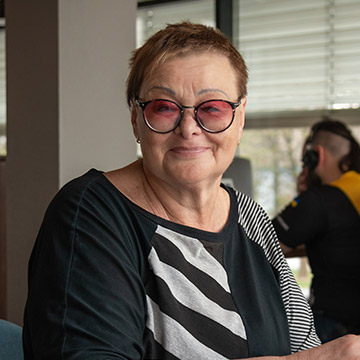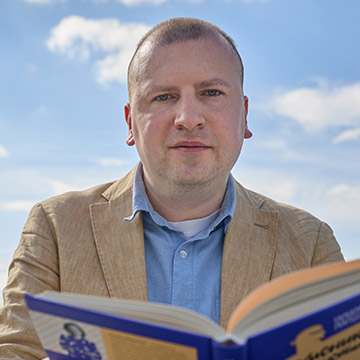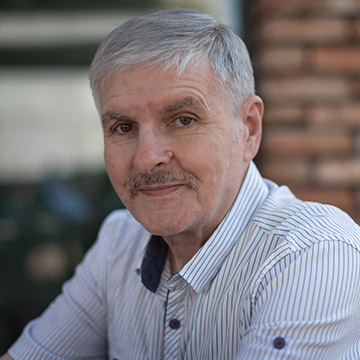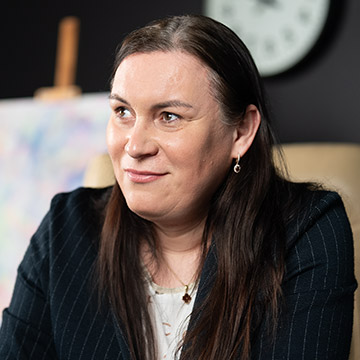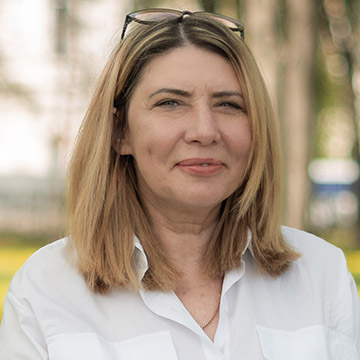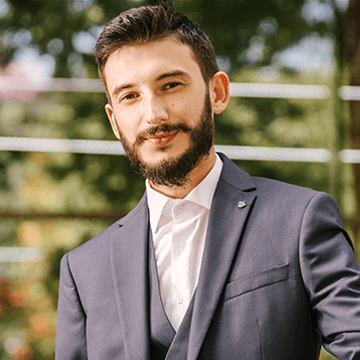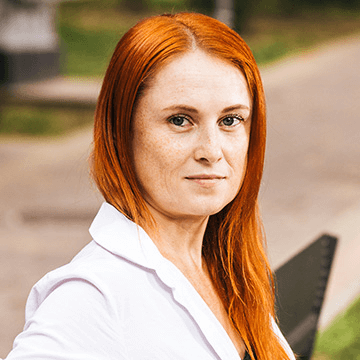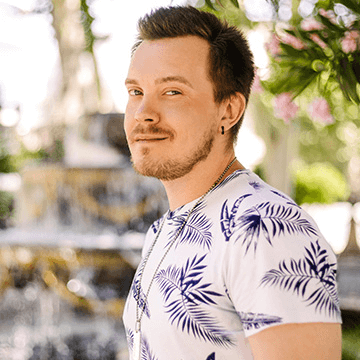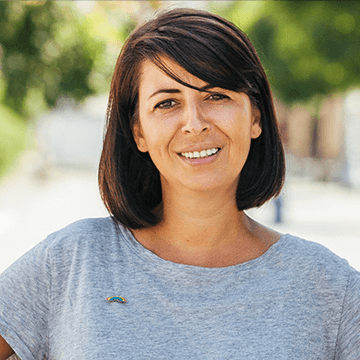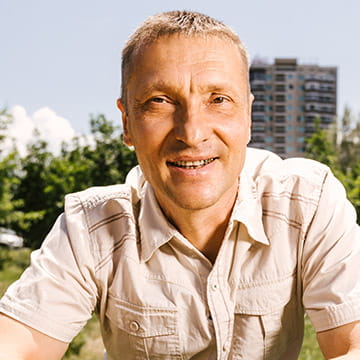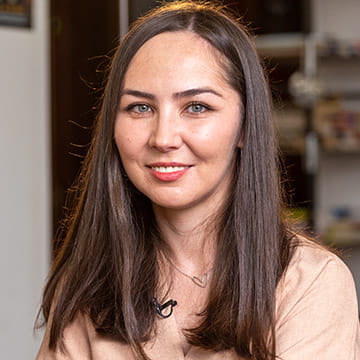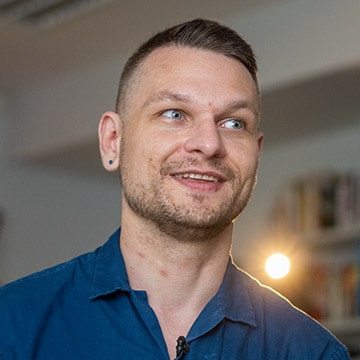Tony’s story
Tblisi, Georgia
Transgender people in Georgia face acute marginalisation. It was only as recent as March 2021 when the first trans person in the country had their gender recognised legally.1 The previous year a trans woman and sex worker set herself on fire2 to protest what she argued was government negligence of the community during the coronavirus crisis.
For Tony, a gender-fluid social worker, being visible is a daily way to push back against the oppression of their community: "I usually use public transport because, for me, that is one part of the community's visibility. We are always told we must stay at home and not go out. Well, I don't want to. So, I ride public transport with all my earrings, pink socks and feminine voice and behaviour, which shows that we are here and we have the right to exist."
When it comes to HIV, Tony is concerned by two opposing attitudes, both misinformed: "Half of the wider population say 'Oh, AIDS, HIV, yuck! We shouldn't be near such people, we shouldn't breathe the same air as
them,' and so on, as though they are talking about the apocalypse. On the other hand, the second half are complacent and think we can take an antibiotic, and everything will be fine."
However, every now and again, Tony experiences moments where they are encouraged and surprised by the levels of HIV awareness in Georgia, particularly among men who have sex with men (MSM) and
transgender people. When a friend shared their HIV status with Tony they automatically went into social worker mode:
"I advised him that everything would be fine, that with the right support it is a manageable condition. But he just replied, 'Why are you explaining this to me? I know this already, and I was prepared to find out I have HIV.' So in these moments, there isn't always the drama you might expect."
When a person says thank you and tells me for example that they are happy to have tested negative because I helped them access PEP, I am so glad. I just love people and I want them to be okay.
Although in key populations there are pockets of strong awareness about HIV, there is still a long way to go, and the need for tailored services is as present as ever. Tony is the executive director of Temida, an organisation advocating for trans issues. They are also involved in HIV, advocacy for the transgender community, and sexual and reproductive health in a number of other roles. They explain that recent years have heaped new challenges on the trans community, who already faced severe stigma, discrimination, and inequity.
"COVID-19 has made things very difficult. Trans people and MSM were mainly working in blue collar jobs but the pandemic greatly reduced the need for these jobs and many of our beneficiaries have struggled as a result.
"On top of that, many trans women are sex workers which can be risky and stressful work. In order to cope, many consume alcohol or drugs. These stress factors, as well as wider transphobia, can jeopardise people's sexual health, or may lead to poor treatment adherence if they already have HIV. They may be less likely to attend the AIDS Centre for tests and to receive medications.
During COVID-19, Tony's organisation provided food packages and vouchers, condoms, HIV testing and consultations with psychologists for trans people and people living with HIV.
"We are not all-powerful, results may not be perfect, but it is areas like these where I hope to see much change over the coming 10 years."
In the meantime, essential frontline work continues toward goals like the UNAIDS target to end the AIDS epidemic by 2030. Tony's work drives progress toward these goals, as well as overall wellbeing.
Among their other work, it is the personal moments which bring Tony the most pride. Taking a person's hand during appointments to get pre-exposure prophylaxis (PrEP) or post-exposure prophylaxis (PEP) has given Tony a chance to support many people through the emotional struggles of these settings: "When a person says thank you and tells me for example that they are happy to have tested negative because I helped them access PEP, I am so glad. I just love people and I want them to be okay."
THE IMPACT OF RADIAN ON TONY'S WORK
RADIAN is supporting the Trans*Map project, which is building the capacities of local transgender community organisations in Eastern Europe and Central Asia to enable trans people to access sustained trans-sensitive HIV services. Tony, as the director of Temida, the Trans*Map national partner in Georgia, leads on coordinating leadership schools for trans community representatives, building partnerships with healthcare professionals, and accumulating strategic information on HIV in the trans community so that services can in future better meet trans people's needs.
Tony and their collaborators aim for this work to facilitate growing trans participation in national HIV programming and the development of a unique model package of trans-competent services.
-
1.
OC Media. (2021). First legal gender recognition in Georgia for trans woman. Available at: https://oc-media.org/first-legal-gender-recognition-in-georgia-for-trans-woman/ [Accessed October 2023]
-
2.
OC Media. (2020). Transgender woman sets herself on fire in Tbilisi. Available at: https://oc-media.org/transgender-woman-sets-herself-on-fire-in-tbilisi/ [Accessed October 2023]




